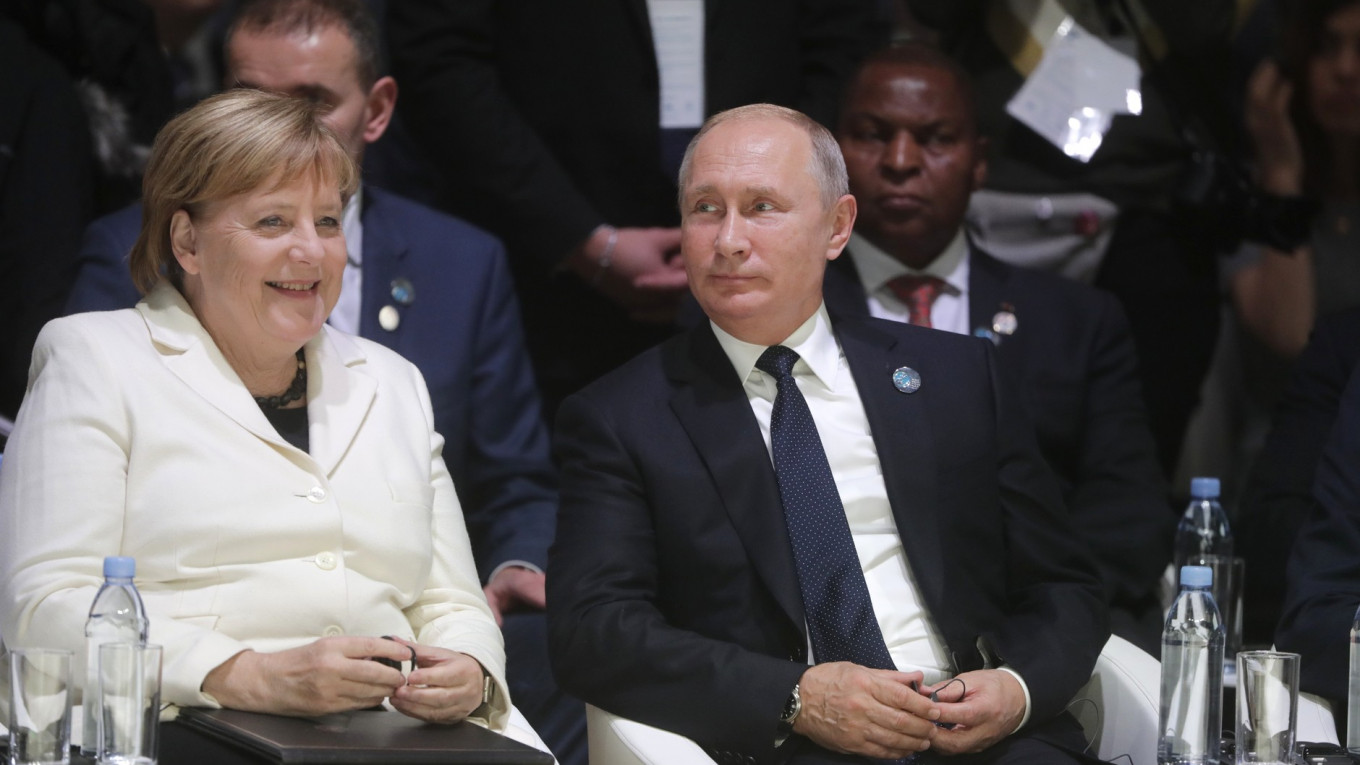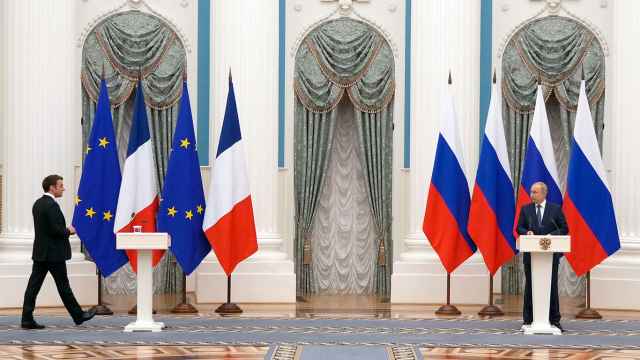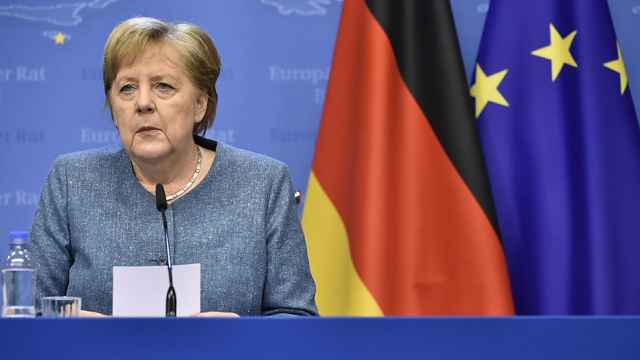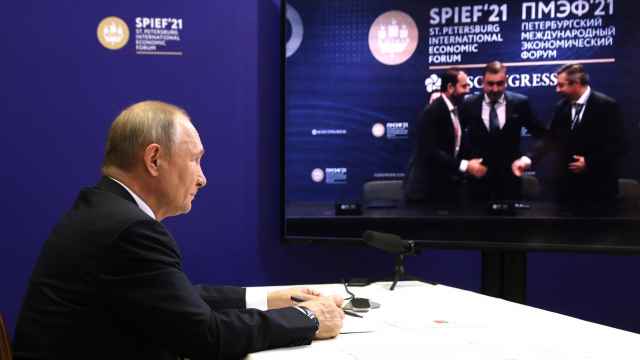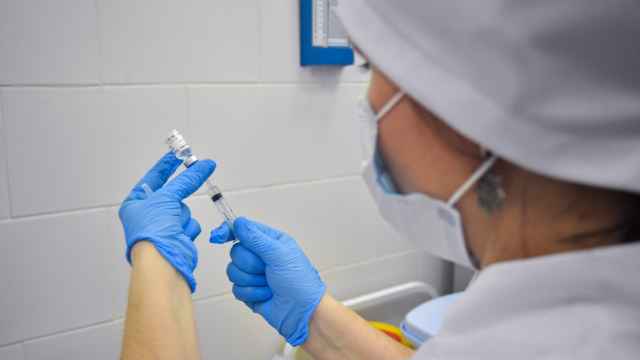French President Emmanuel Macron and German Chancellor Angela Merkel held phone talks with Russian President Vladimir Putin on the prospect of jointly producing Russia’s coronavirus vaccine, the Kremlin announced late Tuesday.
The leaders spoke as Russia awaits European Union approval of its Sputnik V vaccine in the next two months. The EU’s medicine regulator plans to send a team to Russia in April to evaluate clinical trial results and the production process on the ground.
The Kremlin said Putin discussed the “outlook for the registration of the Russian Sputnik V vaccine in the EU and possible deliveries and joint production of the vaccine in the EU countries” with Macron and Merkel.
Macron’s office said the European Medicines Agency (EMA)’s review of Sputnik V “will be based on the same standards it applies for each vaccine.”
According to the Élysée, Macron and Merkel urged Putin to “preserve” jailed Kremlin critic Alexei Navalny’s health and respect his human rights.
The Kremlin’s statement noted only that Putin provided “explanations of the objective circumstances of [Navalny’s] case.”
Navalny, who is serving two and a half years in prison for violating parole while recovering abroad from poisoning with a military-grade nerve agent, has complained of severe leg pain and torture-like deprivation of sleep by guards.
The EU, the United States and other Western countries have levied sanctions against Russian officials and entities for Navalny’s poisoning and imprisonment.
Macron, Merkel and Putin also discussed the escalation of violence in war-torn eastern Ukraine as well as regional conflicts in Libya and Syria and cooperation on returning Iran to the 2015 nuclear agreement.
The three leaders also discussed the political crisis in Belarus, with Macron and Merkel calling for dialogue with its opposition and Putin criticizing "unacceptable" foreign interference there.
A Message from The Moscow Times:
Dear readers,
We are facing unprecedented challenges. Russia's Prosecutor General's Office has designated The Moscow Times as an "undesirable" organization, criminalizing our work and putting our staff at risk of prosecution. This follows our earlier unjust labeling as a "foreign agent."
These actions are direct attempts to silence independent journalism in Russia. The authorities claim our work "discredits the decisions of the Russian leadership." We see things differently: we strive to provide accurate, unbiased reporting on Russia.
We, the journalists of The Moscow Times, refuse to be silenced. But to continue our work, we need your help.
Your support, no matter how small, makes a world of difference. If you can, please support us monthly starting from just $2. It's quick to set up, and every contribution makes a significant impact.
By supporting The Moscow Times, you're defending open, independent journalism in the face of repression. Thank you for standing with us.
Remind me later.


